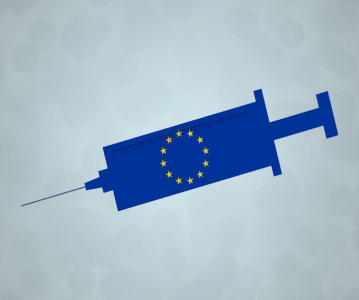South Korean pharmaceutical market to grow slowly to $20.4 billion by 2020

The rise will be small due to the government’s focus on reducing healthcare expenditure and the increasing popularity of generics, says GlobalData.
The pharmaceutical market in South Korea will rise from approximately $18.6 billion in 2016 to $20.4 billion in 2020, representing Compound Annual Growth Rate (CAGR) of 2.4%, as the government increasingly focuses on generics in order to reduce healthcare expenditure, according to research and consultancy firm GlobalData.
The company’s latest report — CountryFocus: Healthcare, Regulatory and Reimbursement Landscape - South Korea — states that the country’s generics market increased from $3.5 billion in 2008 to around $5.8 billion in 2015, growing at a CAGR of 7%, as the government has invested significantly in the generics market in recent years. Many novel drugs are set to lose their patents by 2020, meaning South Korea’s generics market is expected to increase significantly.
Adam Dion, MSc, GlobalData’s Senior Industry Analyst, says: “Overall market growth is expected to be influenced by burgeoning treatment populations and various government initiatives to encourage R&D and sustain growth in the pharmaceutical industry, such as the Korean Small Business Innovation Research program.”
Other government initiatives will also aid businesses, such as lifting the ban on advertisements for medical services, which has enabled hospitals to hire advertising agencies to help them attract medical tourists.
Dion explains: “The Free Trade Agreement with the US, which began in March 2012, has had the effect of lowering tariffs for imports up to 80%, and nearly 95% of bilateral trade in consumer and industrial products has become duty-free for up to five years, making investment in the South Korean pharmaceutical industry easier for multinational companies.”
Related News
-
News Patients vs Pharma – who will the Inflation Reduction Act affect the most?
The Inflation Reduction Act brought in by the Biden administration in 2022 aims to give better and more equitable access to healthcare in the USA. However, pharma companies are now concerned about the other potential costs of such legislation. -
News CPHI Podcast Series: What does the changing US Pharma market mean for industry and patients alike?
In this week's episode of the CPHI Podcast Series Lucy Chard, Digital Editor for CPHI Online is joined by James Manser to discuss the political and market changes in the US pharma field. -
News CPHI Barcelona Annual Report illuminates industry trends for 2024
The CPHI Annual Survey comes into it’s 7th year to report on the predicted trends for 2024. Over 250 pharma executives were asked 35 questions, with their answers informing the industry landscape for the next year, spanning all major pharma marke... -
News Which 10 drugs are open to price negotiation with Medicare in the USA?
The Centres for Medicare & Medicaid Services, under the Biden administration in the USA, has released a list of the 10 drugs that will be open to price negotiations as part of the new legislation under the Inflation Reduction Act (IRA). -
News EU Medical Devices Regulation causes unintended disappearances of medical devices for children, doctors state
Doctor groups and associations have appealed to the EU to correct the EU Medical Devices Regulation law that may cause unintended shortages of essential drug and medical devices for children and rare disease patients. -
News 10 Major Drug Approvals So Far in 2023
Last year, 37 novel drugs were approved by the FDA, this was a high number for such a category, and covered many fields including oncology, demonstrating how promising further research is, and how it is only continuing to build. To date, there are alre... -
News Detecting Alzheimer's disease with a simple lateral flow test
A novel rapid diagnostic test for early-stage Alzheimer's disease has been developed using a biomarker binder from Aptamer Group along with technology from Neuro-Bio, the neurodegenerative disease experts. -
News CPHI Podcast Series: outsourcing and manufacturing trends
Listen to the CPHI Podcast Series this June to hear Gil Roth of the PBOA speak with Digital Editor Lucy Chard about the biggest trends and topics to watch in pharma outsourcing and manufacturing at the minute.
Position your company at the heart of the global Pharma industry with a CPHI Online membership
-
Your products and solutions visible to thousands of visitors within the largest Pharma marketplace
-
Generate high-quality, engaged leads for your business, all year round
-
Promote your business as the industry’s thought-leader by hosting your reports, brochures and videos within your profile
-
Your company’s profile boosted at all participating CPHI events
-
An easy-to-use platform with a detailed dashboard showing your leads and performance







